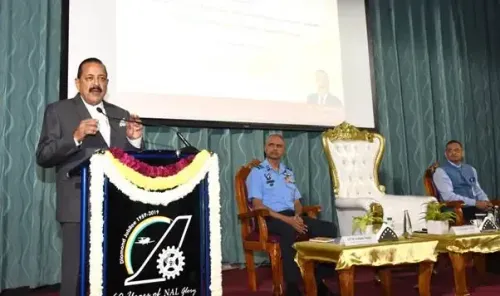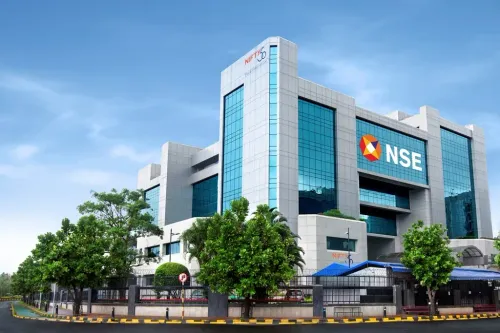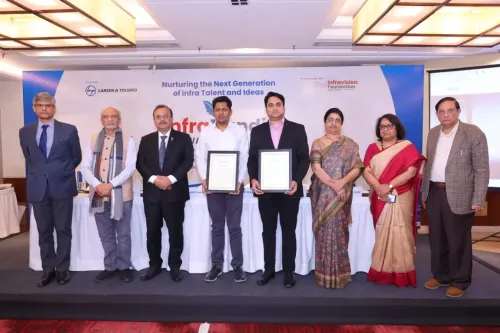Can India’s tech services sector really create 4 million jobs in 5 years?

Synopsis
Key Takeaways
- 4 million new jobs can be created in 5 years.
- The National AI Talent Mission is a key initiative.
- Routine jobs at risk due to AI disruption.
- Collaboration is essential for workforce development.
- India aims to be the global hub for AI talent by 2035.
New Delhi, Oct 10 (NationPress) While India’s tech services sector is confronted with the potential for considerable job losses by 2031, it also presents a remarkable chance to generate up to 4 million new jobs over the next five years, according to NITI Aayog.
To convert disruption into a valuable opportunity, NITI Aayog has proposed the initiation of a National AI Talent Mission, a daring, nationally synchronized effort aimed at establishing India as the global AI workforce capital.
NITI Aayog unveiled a ‘Roadmap for Job Creation in the AI Economy’ authored by B.V.R. Subrahmanyam, CEO of NITI Aayog, during an event attended by Sanjay Kumar, Secretary of the Department of School Education and Literacy; Vineet Joshi, Secretary of the Department of Higher Education; Debjani Ghosh, Distinguished Fellow at NITI Aayog, along with other esteemed guests.
The roadmap investigates the impact of Artificial Intelligence on the tech services industry through the perspectives of work, worker, and workforce.
The findings indicate that AI disruption is actively transforming jobs within India’s $245 billion technology and customer experience (CX) industries.
Without prompt measures, routine positions like QA engineers and L1 support agents could face rapid obsolescence. However, with appropriate skilling, reskilling, and innovative strategies, India has the potential to become a global center for AI-first roles—ranging from Ethical AI Specialists and AI Trainers to Sentiment Analysts and AI DevOps Engineers.
“India’s true strength lies in its people. With a workforce exceeding 9 million in technology and customer experience, alongside the world’s largest pool of youthful digital talent, we possess both the scale and ambition. What we require now is urgency, vision, and collaboration,” emphasized Subrahmanyam.
“The distinction between job loss and job creation rests solely on the decisions we make today. This roadmap outlines a clear, actionable strategy to ensure that India becomes the global hub of AI talent by 2035,” Ghosh added.
The report also advocates for close cooperation between the envisioned India AI Talent Mission and the ongoing India AI Mission, as well as partnerships among academia, government, and industry to foster an environment equipped with computational infrastructure and data availability to cultivate the skilled talent into tomorrow’s innovators and researchers.
India’s trajectory in the AI economy is contingent on decisive actions. With unified leadership spanning government, industry, and academia, the report insists that India can not only protect its workforce but also take the lead in shaping the global AI landscape.









